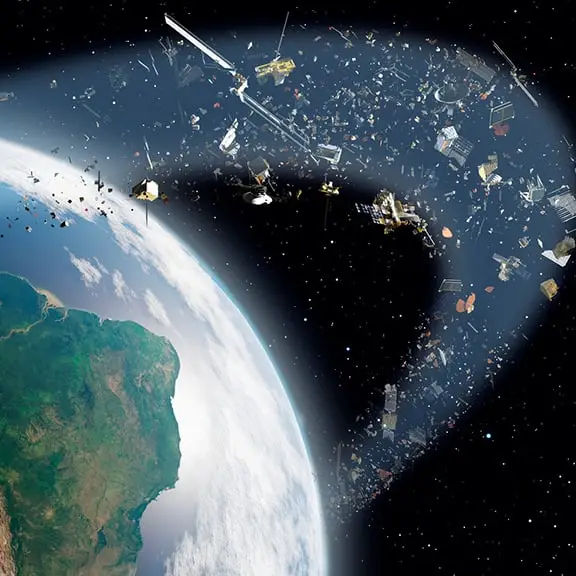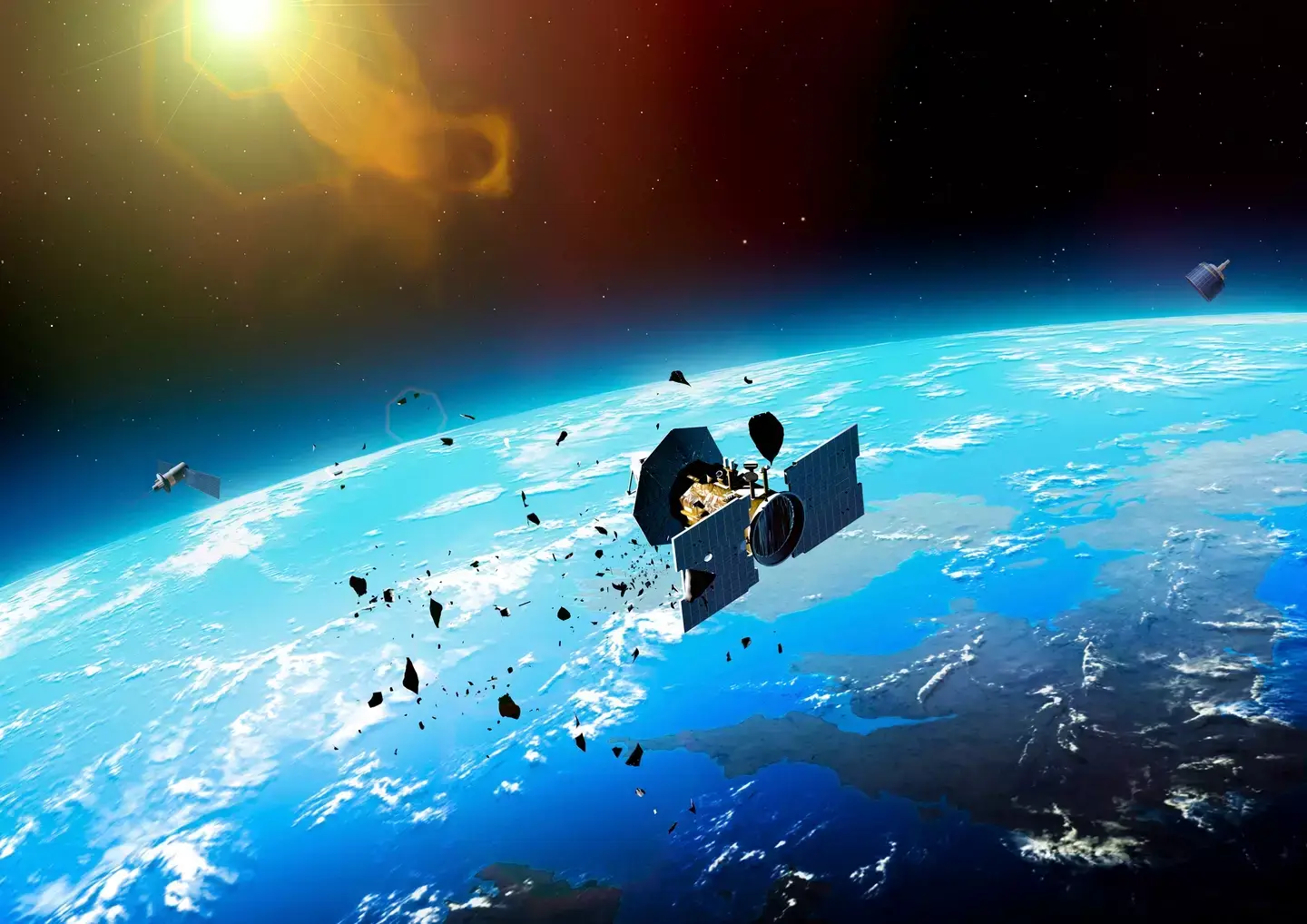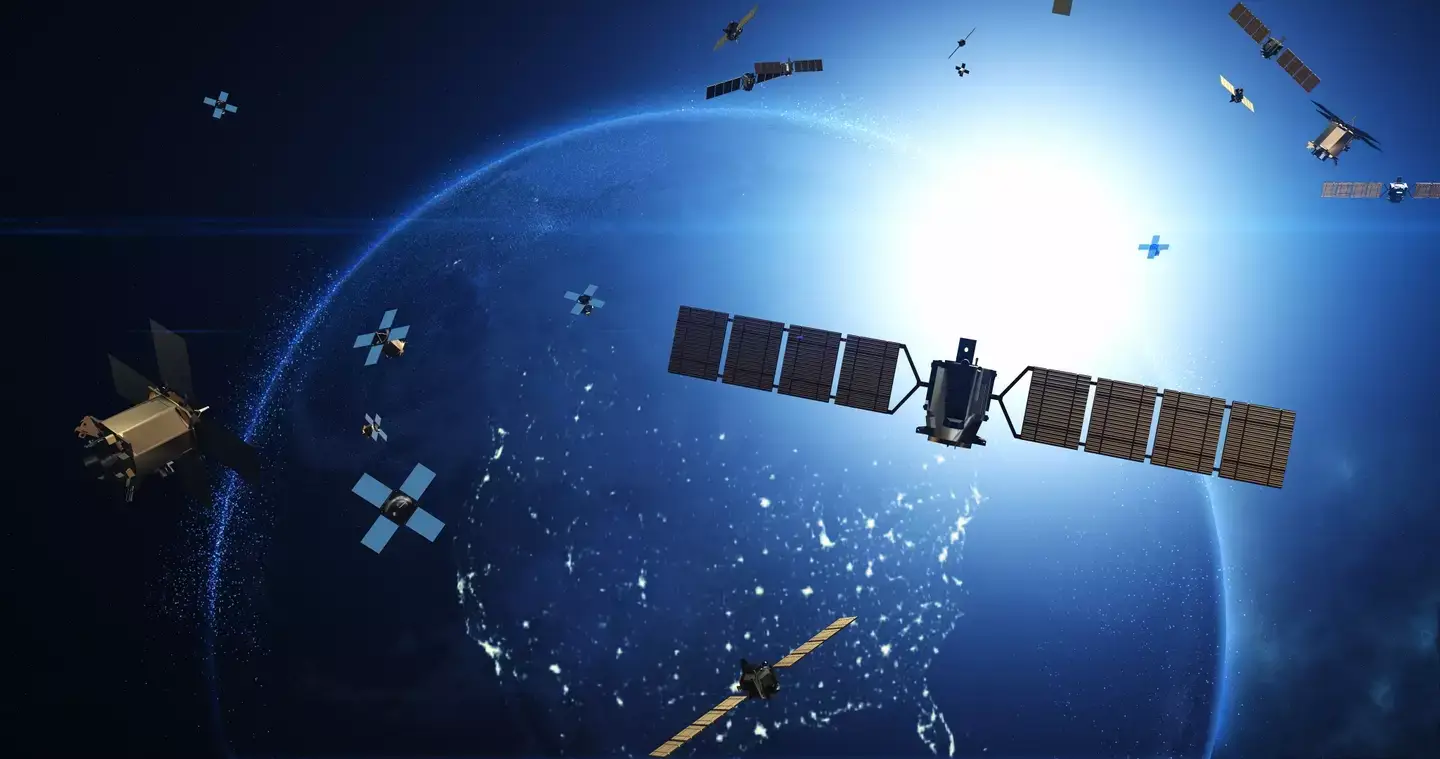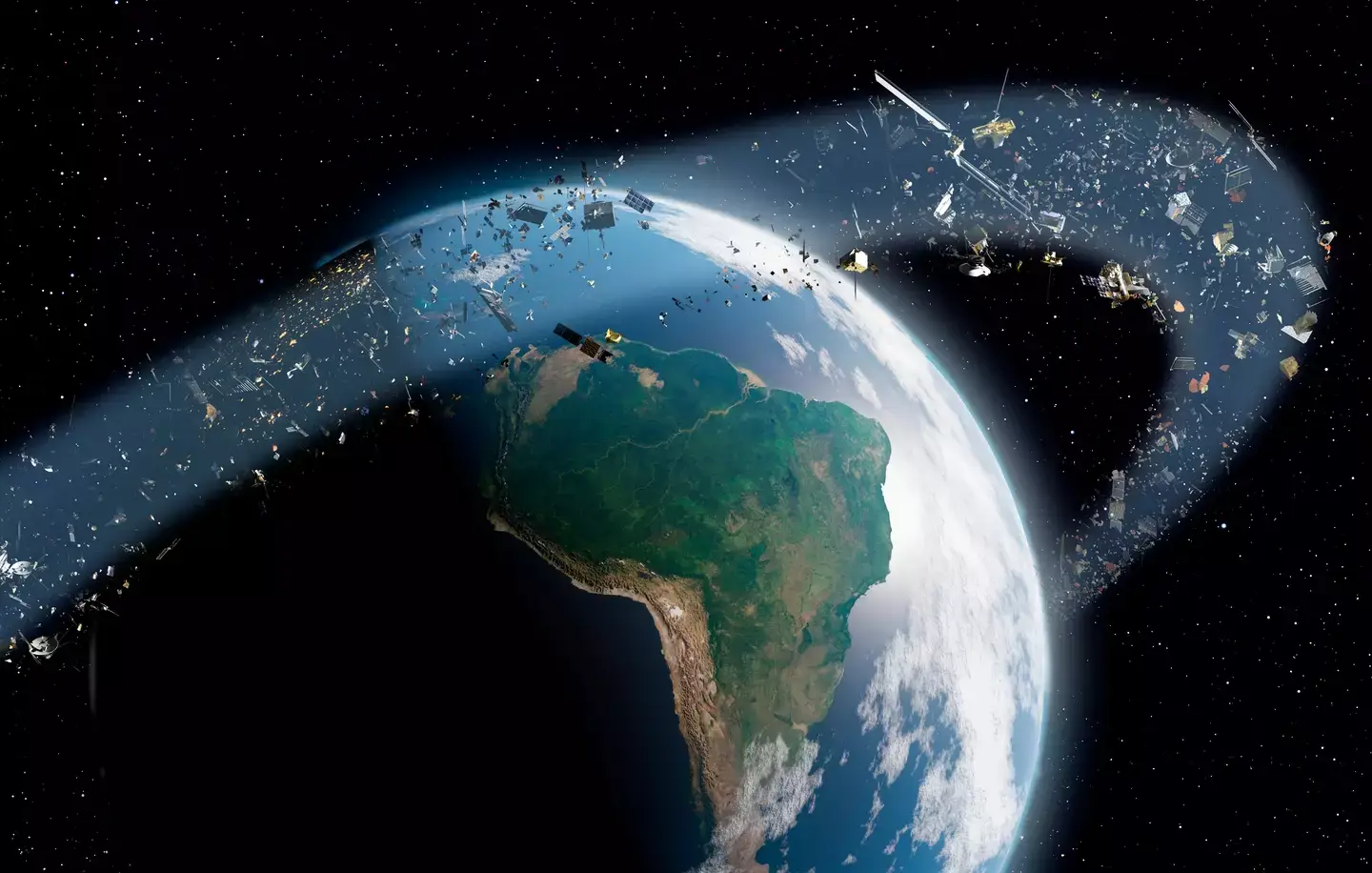
There is a devastating way that the Kessler Syndrome could affect life on Earth if it comes true.
The theory that debris in space could turn into a high-speed death trap circling our planet sounds like something out of a sci-fi blockbuster.
But unfortunately, it’s not a thing of fiction and instead, it’s a real risk that we’re facing.

Advert
The Kessler Syndrome is a scenario that was first thought up in 1978 by two NASA scientists - Donald Kessler and Burton Cour-Palais.
The theory is that, if we keep sending more and more spacecraft into space, then the space around Earth is going to become overcrowded.
NASA said: “Spent rockets, satellites and other space trash have accumulated in orbit increasing the likelihood of collision with other debris.
“Unfortunately, collisions create more debris creating a runaway chain reaction of collisions and more debris known as the Kessler Syndrome after the man who first proposed the issue, Donald Kessler.”
In the worst case scenario, a chain reaction of collisions could be caused that has the potential to destroy essential communications satellites around the planet.

In this case, the situation will then become so volatile that we can't successfully send up new satellites to replace the broken ones due to the area of space in which they orbit becoming unstable and full of fast-moving debris.
This debris will smash anything new into a thousand pieces.
There are currently more than 10,000 satellites orbiting the Earth and more than 100 trillion pieces of old satellites still circling the planet, with parts occasionally falling into Earth's atmosphere over time and burning up.
John L Crassidis, a professor of innovation and space debris expert at the University at Buffalo, New York, said: “The Kessler Syndrome is going to come true. If the probability of a collision is so great that we can’t put a satellite in space, then we’re in trouble.”
How will the Kessler Syndrome affect life on Earth?
One major problem if the theory comes true is that air travel and the train industry will be on its knees because a breakdown in satellite comms would mean no GPS to help navigate the world.
Everything would have to be done manually by pilots and crews, which leaves flights open to significant risks in situations such as communicating with Air Traffic Control.
The agricultural industry uses satellites every single day when it comes to planning crops, harvesting them, or even mapping the yield you can create from however many fields of produce you are growing.
Without technology, primitive methods of farming would have to be undertaken and the disruption to the world food supply network would be catastrophic.

When it comes to nuclear power, many of the systems used to monitor safety issues would not work, leading to catastrophic incidents and meltdowns should they go unnoticed.
Renewable energy sources would be hindered, with satellite communication essential to making these industries work (such as when to open or close gates on a dam).
There would be a race for energy security, with those relying on other nations and importing it the most at risk.
Another major impact would be to healthcare.
Drug transportation would be devastated, leaving people with chronic and serious conditions without the medical aid and help they need to, in some cases, stay alive.